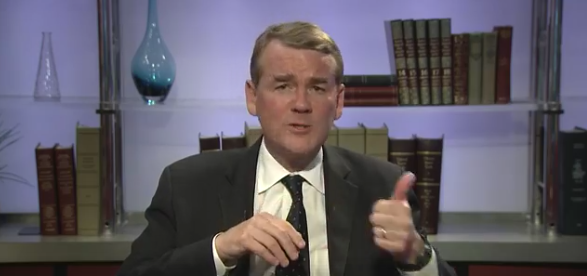 In an opinion piece by the Washington Post‘s Jennifer Rubin, Rubin argues that the Democratic National Committee is right to limit the number of participants in its debates to those who can meet the party’s thresholds for polling and/or fundraising. The threshold jumped to polling at two percent for the second round of debates (the horror). Guess who’s a top example? Colorado’s very own Democrat U.S. Senator Michael Bennet.
In an opinion piece by the Washington Post‘s Jennifer Rubin, Rubin argues that the Democratic National Committee is right to limit the number of participants in its debates to those who can meet the party’s thresholds for polling and/or fundraising. The threshold jumped to polling at two percent for the second round of debates (the horror). Guess who’s a top example? Colorado’s very own Democrat U.S. Senator Michael Bennet.
Here’s the part where he gets smacked down:
“Calling the criteria “arbitrary” is meaningless. There has to be a cutoff somewhere. Sen. Michael Bennet (D-Colo.) opines, ‘I don’t think they should be winnowing the field.’ Actually, that is precisely what the DNC should do — the earlier, the better.”
Of course, he wouldn’t feel that way if he was even remotely in a position of strength. The fact is that Bennet is not polling well. Is he a good candidate? Well, he has the pedigree for the Democratic process, but the truth is that he got a late start due to his prostate cancer surgery and simply hasn’t made it up otherwise. Is it fair? Is life fair? Probably not. But it’s reality right now.
Here’s why Rubin argues that folks like Bennet should either shut up or do better:
“In point of fact, there is a fleet of candidates who practically never register above 1 percent. The party is indulging these candidates by setting a very low threshold of 1 percent. However, the purpose of debates is to help voters make a choice, and they cannot do so if 10 people per debate get only a few minutes each to make their case.”
In addition to voters having no idea who Bennet is because of a variety of factors, he’s probably also less appealing than the far left candidates that are driving the Democrat party right now, like Bernie Sanders. He’s known as a more moderate Democrat. That’s probably not the worst thing in the world for an elected official, but it’s terrible in the primary. Again, probably not fair, but probably reality.
